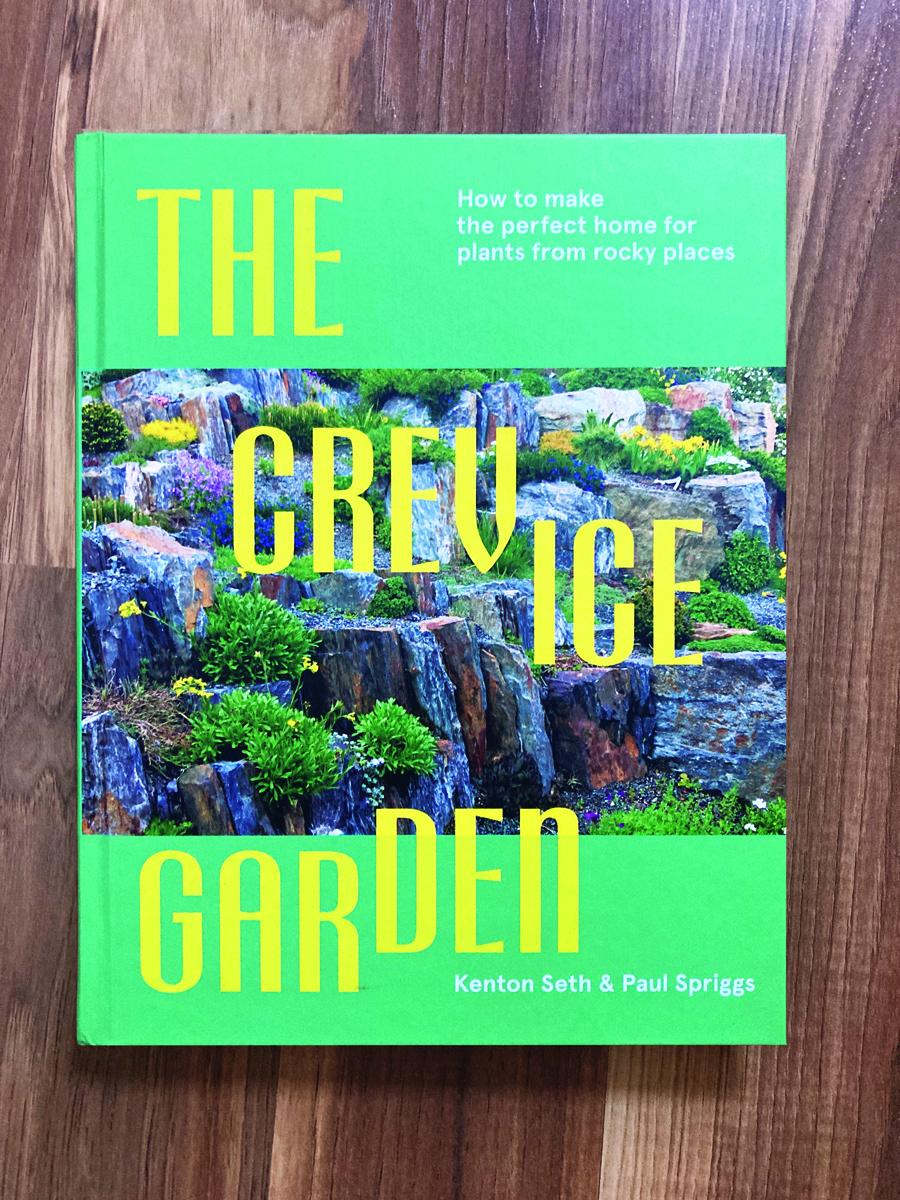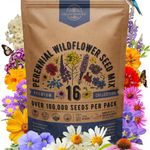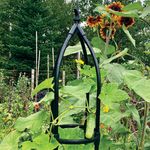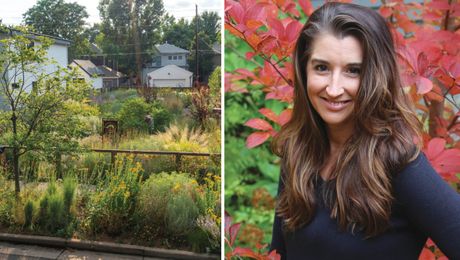We’re visiting with Chad and Seyra Hammond in Woodbury, Connecticut, today. We stopped by their beautiful garden last week (Chad and Seyra’s Garden), and I’m happy to be back there today. They love growing and collecting unusual plants, and the result is a beautiful and fascinating garden.
We started water gardening after the koi pond proved too emotionally taxing for us. (Many of you know the heartache of losing your fish to predators.) So now we grow water lilies (Nymphaea species and hybrids) and lotus (Nelumbo nucifera, Zones 5–10) . We fertilize them with pond tabs every couple of weeks in the summer and divide them every three to four years. They survive the winter in the pond with no extra protection. I would consider them very low maintenance except that you do have to get wet now and then, and lifting waterlogged pots full of clay and roots can be challenging. Keeping the pots small and using lightweight media instead of clay would probably help if I got around to taking my own advice.
We love visiting gardens wherever we go. Many years ago I saw a combination of Schizachyrium scoparium (Zones 3–9) and Rudbeckia triloba (Zones 4–8) at the National Arboretum in Washington, D.C., that I could never get out of my head. It manifested itself here in our garden many years later. I love it so much I think I’ll always have some iteration of it. This photo shows Schizycharium scoparium ‘Standing Ovation’ and Helianthus salicifolius (Zones 4–9) in the foreground, and the fall colors of Viburnum nudum ‘Brandywine’ (Zones 5–9) pick up the pink tones of the grass.
We have started collecting primulas also. There are so many species and variations within the species. Many are easy to grow from seed and spread well in the right conditions. These dainty little blooms are Primula japonica (Zones 4–8), with Tiarella cordifolia (Zones 4–9), growing in a shady, moist bed. Both spread eagerly and create exuberant displays in spring. I have been spreading them around any other hospitable patches of land I come across because I can’t get enough of these two together.
As you can tell, we have many plant addictions. Begonias are one of them. They seem to thrive in the bright shade of the patio on the north side of the house. Their endless leaf shapes, textures, and colors along with their ease of propagation makes them so collectible. This photo includes Begonia luxurians and B. parviflora, and the hybrids ‘Pigskin,’ ‘Marmaduke,’ ‘Connie Boswell,’ ‘Little Brother Montgomery’ (Zones 9–11 or grown as annuals or houseplants), and some unnamed varieties.
These begonias, along with about a million other plants, need to come inside in October during the Great Plant Migration. Here is Chad, the proud plant dad, carrying them down to the basement for their long winter’s nap. He is 6 ft. 4 in. for scale.
Here is a favorite plant combination of mine that we can take no credit for. This is Hydrangea quercifolia ‘Little Honey’ (Zones 5–9), Impatiens omeiana (Zones 6–9), and Lobelia cardinalis ‘Black Truffle’ (Zones 3–9).
Yet another plant addiction of ours is redbuds, particularly the ones with colorful foliage. We love their big heart-shaped leaves. It just so happens that the species is native to much of the country, offers flowers for pollinators in early spring, and even has a bit of fall color if you’re lucky. Our favorites include Cercis canadensis ‘Alley Cat’ (Zones 4–8; pictured), which is a bright beacon in the dark woods. To the left is Calycanthus floridus ‘Burgundy Spice’ (Zones 4–9).
I am so enamored by the freckles on Cercis ‘Rising Sun’.
Here are some leaves of Cercis ‘Ruby Falls’ frosted by an early October snowfall.
One annual we love for adding bulk and interest to understocked and boring borders is Ricinus communis ‘New Zealand Purple’ (Zones 9–11 or as an annual) on the left. Panicum virgatum ‘Northwind’ (Zones 5–9) and Chrysanthemum ‘Rustic Glow’ (Zones 5–9) are in the foreground.
Yes, conventional wisdom says to leave the lady slipper orchids to the experts. They are expensive and finicky. But you won’t know until you try. And we just had to try. This is a Cypripedium japonicum (Zones 4–7) we planted in the woods in the native soil with wood-chip mulch about three years ago. This spring we had two blooms! During the week or so it was in bloom, you better believe I was out there gawking every moment I could. And it is a good thing I soaked it in as much as I did. The drought was terrible this year, and the foliage withered away in late summer despite our attempts at watering. We won’t know until spring if we’ve lost it for good or if it just decided to go dormant early. Wish us luck. We cannot wait to find out if this one will be coming back.
To see more of this garden, visit their instagram: @s2szahme
Have a garden you’d like to share?
Have photos to share? We’d love to see your garden, a particular collection of plants you love, or a wonderful garden you had the chance to visit!
To submit, send 5-10 photos to [email protected] along with some information about the plants in the pictures and where you took the photos. We’d love to hear where you are located, how long you’ve been gardening, successes you are proud of, failures you learned from, hopes for the future, favorite plants, or funny stories from your garden.
Have a mobile phone? Tag your photos on Facebook, Instagram or Twitter with #FineGardening!
Do you receive the GPOD by email yet? Sign up here.
Fine Gardening Recommended Products
The Crevice Garden: How to make the perfect home for plants from rocky places
Fine Gardening receives a commission for items purchased through links on this site, including Amazon Associates and other affiliate advertising programs.
A crevice garden replicates the environmental conditions of mountain tops, deserts, coastlines, and other exposed or rocky places on earth. These striking garden features provide perfect conditions for the plants native to these far-off places, bringing the cultivation of these precious gems within everybody’s reach.
Organo Republic 16 Perennial Wildflower Seeds Mix for Indoor & Outdoors
Fine Gardening receives a commission for items purchased through links on this site, including Amazon Associates and other affiliate advertising programs.
Premium 16 Perennial Wildflower Seeds Mix - Special Garden Flower Seeds Blend designed for planting indoor & outdoors across North America. With over 16 varieties and 100,000 wildflower seeds, this mix is the best solution to attract pollinators - bees, butterflies & birds are essential for garden plants health. Our Special Perennial Wildflower Seeds Mix Includes White Yarrow, Columbine, New England Aster, Siberian Wallflower, Shasta Daisy, Lance-Leaf Coreopsis, Sweet William, Purple Coneflower, Blanketflower, Gayfeather, Blue Flax, Lupine, Dwarf Evening, Primrose, Mexican Hat, Prairie Coneflower, Black Eyed Susan. Easy & Fun Growing Experience with our online guides - Don’t plant disappointment - Add more colors to your wildflower garden! We send only super hearty heirloom flower seeds with the highest germination rate and fast sprout. Our detailed growing guide helps you grow seeds the garden of your dream like a PRO. Colorful Wildflower Garden from Seeds - Grow wildflowers everywhere - Indoor in window garden or Outdoors Flower garden Garden make a beautiful design for your garden borders, pathways, field or meadow and attract pollinators. Made in the USA by Small Family-Owned Business - Quality You Can Trust - Our wildflower bulk seeds variety pack are tested at the highest germination rates before being sealed to last for up to 3 years before you need to plant. Each packet of our flower seeds variety pack is resealable to make it easy to store and has its own label with a QR code for the growing instructions.
Lee Valley Garden Obelisks
Fine Gardening receives a commission for items purchased through links on this site, including Amazon Associates and other affiliate advertising programs.
Sturdy yet lightweight, these obelisks provide ample support for climbing plants while being easy to install and move. The medium obelisk stands 68 1/2" high overall with a diameter of about 9 1/2", compact enough for smaller containers indoors or out. The large size stands 86 1/2" high with a diameter of 15 3/4", ideal for larger outdoor spaces and containers.
































Comments
I adore Schizachyrium scoparium. I have a tiny clump that almost died away during our drought this past summer. I also have Little Honey but mine looks no where as good as this one does.
This summer was such a challenge for us as well. But don't give up! And sometimes our plants just need some time to settle in. I hope your Schizachyrium and Little Honey has the opportunity to bulk up more next year!
Absolutely one of the finest gardens featured. You introduced me to a couple of plants that I will have to find.
Thank you so much! Happy plant hunting!
I think I'm more amazed at the foliage of the Lady's Slipper than the flower- what amazing leaves it has!
Sorry about your sad Koi experience, even in the city we have wildlife that goes after the fish for a meal. My neighbor Dana has tiny pond, so not sure this solution would work for your larger pond-, but she had some iron artist's make an ornate cover with a portion that opens to get your hand in for maintenance without having to move the whole thing. I made a video here: https://www.youtube.com/watch?v=wqLE_ykiXwM
What a perfect place for that Alley Cat Redbud! It really shines at the edge of the woods!
The GIANT begonias are very impressive- I've never seen them so huge- I bet your basement is a paradise in the winter with all those begonias- or do they go dormant?
Such a fabulous garden!
It's funny you mention the pleated fan like leaves of the lady slipper. That's also what I first fell in love with when I saw them out of bloom at Chanticleer. I didn't even realize there were blooms that would rival the beauty of the foliage. :)
That is the most beautiful pond cover I've ever seen! Kudos to your friend and the artist! Thanks so much for sharing your video. We used to cover the pond in bird netting. But snakes would get stuck in the holes and the lotus would not be able to grow through. So for now, we are fishless. I miss them though. They were such inquisitive creatures. They would eat pellets from our hands. Maybe one day we can have them again!
The rhizomatous begonias mostly stay in growth over the winter for me, sometimes looking a little bedraggled. They really shine outdoors!
Thanks for your comments Sue!
Maybe one day you will built a small enclosed ornamental green house with a Koi pond on your property and to house the Begoinias over winter!
Oh my heart... this is all too fantastic! The primulas and those begonias have caused me such envy - I struggle with both. I see you have a frog log in your pond - we have one in our pool and it usually does the trick. Only problem is the large frogs who use it to sun themselves then leap into the pool when I try to remove them! Those lotuses are spectacular. Wow!
Don't give up! Keeping trying the primulas and begonias until you find the recipe for success for your spot. You have a keen eye for noticing the frog log. I find that the birds and rodents use them too. I really should get more. Thanks for your comments!
Wow! Just ... Wow!!! What a gorgeous garden. I have seen Cercis Ruby Falls and Rising Sun before, but Alley Cat is also a beauty and one I have not seen before. I may have to search for it. The colors and textures of this garden are wonderful. And Chad and the behemoth begonia are great too. Sorry about the fish - I share your pain. Wildlife got mine too. But everyone has to eat, I guess. Love your pond with the water lilies and lotus. Also the blue fish at the end of the pond. Love it all - it is gorgeous!
Chad is pretty great lol. I couldn't do it without him. I picked up Cercis Alley Cat from Broken Arrow Nursery here in CT. I believe they do mail order too. Cercis are like potato chips, you can't have just one :)
I just checked out your video of the pond cover. I want one! It is beautiful and functional. Thanks for sharing.
Any garden with primulas and tiarellas is my kind of garden. Beautiful!
Log in or create an account to post a comment.
Sign up Log in